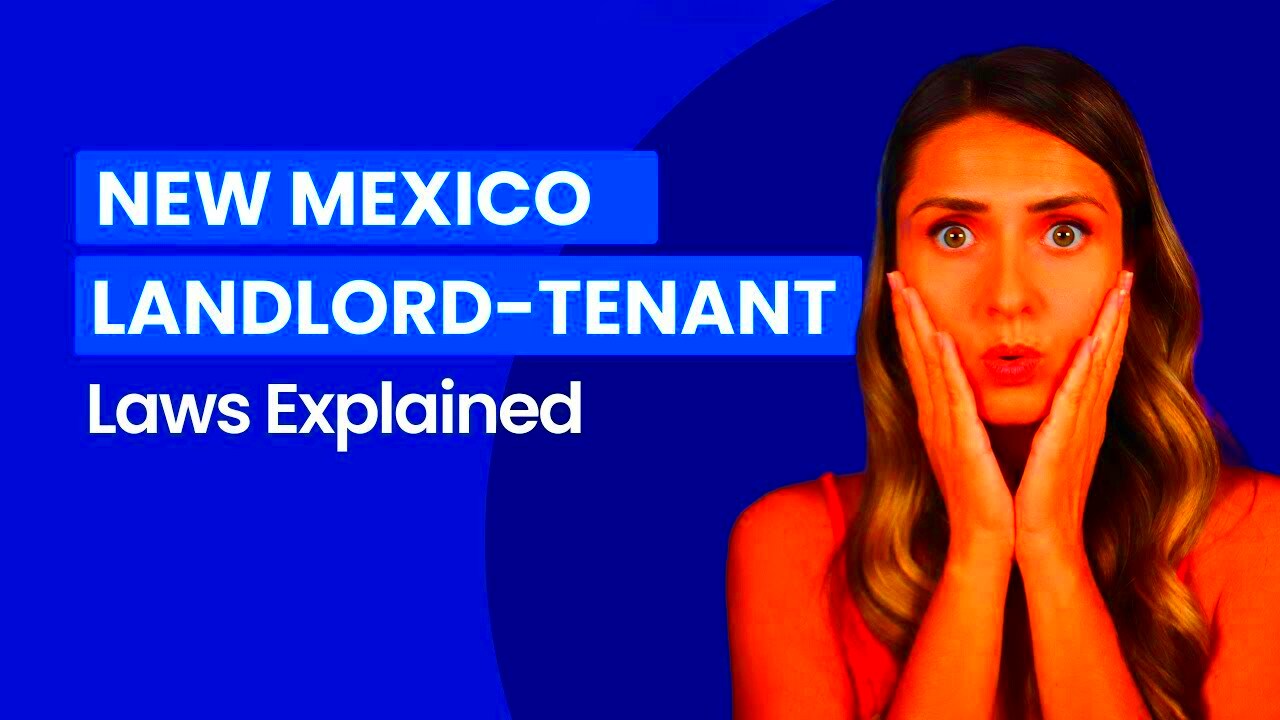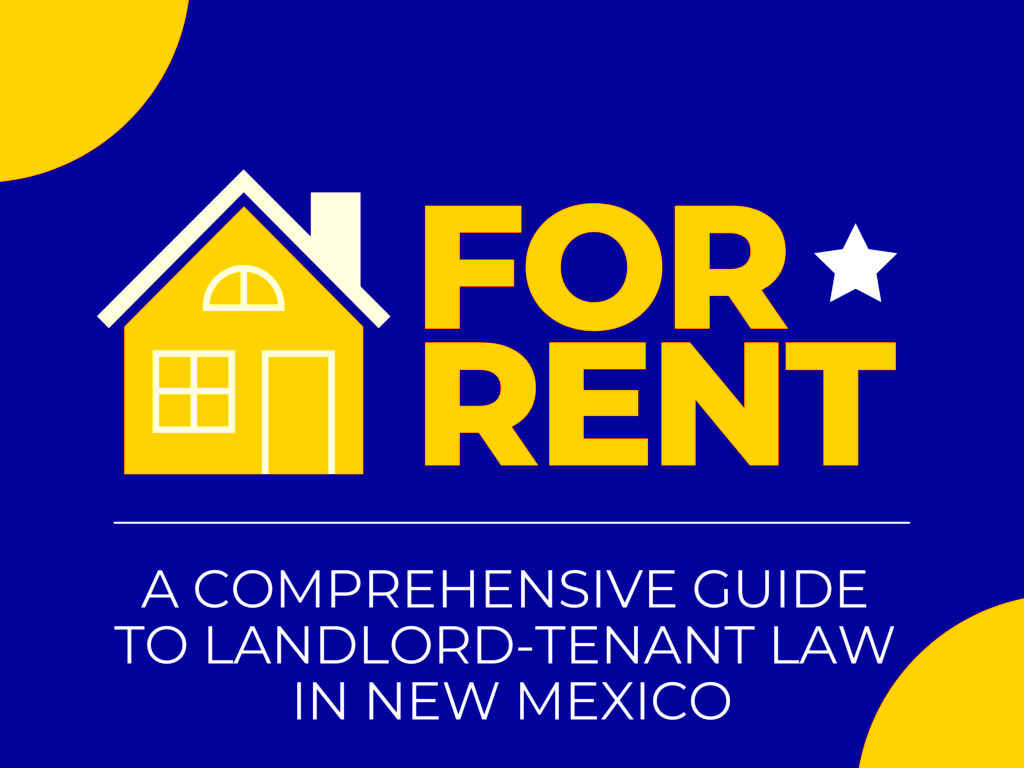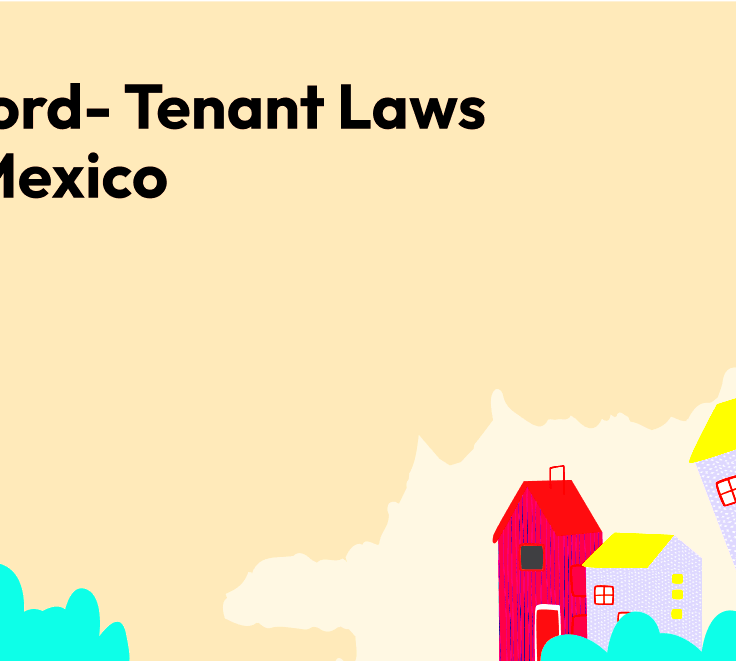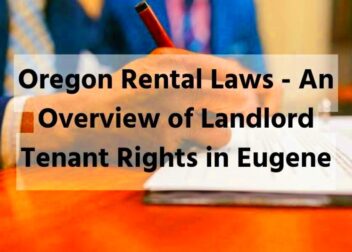What You Need to Know About New Mexico Landlord-Tenant Laws
New Mexico has specific laws that govern the relationship between landlords and tenants. Understanding these laws is crucial for both parties to ensure their rights and responsibilities are met. Whether you are renting a home or managing a property, being informed helps prevent misunderstandings and disputes. This post will explore essential aspects of landlord-tenant laws in New Mexico, covering lease agreements, rights, and responsibilities, as well as important procedures. Let’s dive in!
Understanding Lease Agreements in New Mexico

A lease agreement is a crucial document that outlines the terms between landlords and tenants. In New Mexico, this contract can be either written or verbal, but it’s always best to have a written agreement to avoid confusion. Here are some key elements to include in a lease:
- Parties Involved: Clearly state the names of the landlord and tenant.
- Property Description: Include the address and details of the rental property.
- Duration: Specify whether it’s a month-to-month lease or for a fixed term.
- Rent Amount: State the monthly rent and the due date.
- Security Deposit: Mention the amount required and conditions for its return.
- Rules and Regulations: Include any specific rules about pets, smoking, and maintenance.
Having a clear lease agreement helps both parties understand their obligations and provides a reference in case of disputes. Be sure to read and understand the lease before signing, and consider seeking legal advice if needed.
Rights and Responsibilities of Landlords

Landlords in New Mexico have specific rights and responsibilities to ensure a safe and comfortable living environment for tenants. Here’s a breakdown of what landlords should know:
- Right to Receive Rent: Landlords have the right to collect rent on time as specified in the lease.
- Right to Access Property: Landlords can enter the rental unit for repairs, inspections, or emergencies, usually with notice.
- Responsibility for Repairs: Landlords must maintain the property, ensuring it meets safety and health standards.
- Return of Security Deposit: Landlords must return security deposits within a specified time frame after the lease ends.
- Non-Discrimination: Landlords cannot discriminate against tenants based on race, religion, gender, or other protected classes.
Understanding these rights and responsibilities helps landlords manage their properties effectively and fosters a positive relationship with tenants. It’s essential for landlords to stay informed about any changes in local and state laws to ensure compliance.
Rights and Responsibilities of Tenants
As a tenant in New Mexico, you have rights that protect you and responsibilities that ensure you contribute to a positive rental experience. Understanding these rights and responsibilities is essential for a smooth relationship with your landlord. Here’s what you should know:
- Right to a Habitable Space: Tenants have the right to live in a safe and healthy environment. This means the property must be free of hazards like mold, pests, and structural issues.
- Right to Privacy: Landlords must provide notice before entering your rental unit, except in emergencies. You have the right to enjoy your home without unnecessary interruptions.
- Responsibility to Pay Rent: Tenants must pay rent on time as specified in the lease. Failure to do so can lead to eviction.
- Responsibility for Damages: If you cause damage beyond normal wear and tear, you are responsible for repairs. This includes any intentional damage or negligence.
- Right to Request Repairs: If there are issues in your unit that need fixing, you can request repairs from your landlord. Make sure to document your requests.
Knowing your rights and responsibilities helps you advocate for yourself while being a good tenant. Open communication with your landlord can prevent many common issues.
Security Deposits and Rent Payments
Security deposits and rent payments are fundamental aspects of the landlord-tenant relationship in New Mexico. Understanding how these work can save you from potential disputes later on. Here’s what you need to know:
- Security Deposit Amount: In New Mexico, landlords can charge a security deposit that typically cannot exceed one month’s rent. This deposit serves as protection against damages or unpaid rent.
- Payment Timing: Rent is usually due on the first of each month, but this can vary based on your lease agreement. Always check your contract for specifics.
- Payment Methods: Landlords may accept various payment methods, including checks, online payments, or money orders. Ensure you keep records of all payments made.
- Return of Security Deposit: After your lease ends, landlords must return your security deposit within 30 days, minus any deductions for repairs or unpaid rent. You should receive an itemized list of any deductions made.
- Disputes Over Deposits: If you believe your landlord is unfairly withholding your deposit, you can file a complaint with the New Mexico Attorney General’s Office or seek legal advice.
Understanding the rules around security deposits and rent payments will help you avoid conflicts and ensure a smooth rental experience.
Handling Repairs and Maintenance Issues
Repair and maintenance issues can arise in any rental property, and knowing how to handle them is essential for both tenants and landlords. Here’s how tenants can effectively manage these situations:
- Report Issues Promptly: As soon as you notice a problem, report it to your landlord. Provide details about the issue, including when it started and any relevant photos.
- Document Everything: Keep records of all communications with your landlord regarding repairs. This includes emails, texts, and written requests. Documentation can help if disputes arise.
- Follow Up: If your landlord doesn’t respond in a reasonable time, follow up with them. Sometimes, a polite reminder is all that’s needed.
- Understand Your Rights: If repairs are not made in a timely manner, tenants have the right to withhold rent or make necessary repairs themselves and deduct the cost from rent. However, it’s crucial to follow legal procedures and inform your landlord before taking such actions.
- Know Emergency Procedures: In case of emergencies like water leaks or electrical issues, contact your landlord immediately. If they are unresponsive, you may need to contact local authorities or emergency services.
By effectively handling repairs and maintenance issues, you can ensure a safe and comfortable living environment. Open communication with your landlord is key to resolving any problems that may arise.
Termination of Lease Agreements
Terminating a lease agreement is a significant step for both landlords and tenants in New Mexico. Understanding the proper procedures for ending a lease helps avoid disputes and ensures everyone’s rights are respected. Here’s what you need to know:
- Notice Requirements: Both landlords and tenants must provide written notice to terminate a lease. The notice period varies based on the lease type:
- Month-to-month leases require at least 30 days’ notice.
- Fixed-term leases generally last until the end date unless both parties agree to terminate early.
- Early Termination: If you need to end a lease early, you may be able to negotiate with your landlord. Some reasons for early termination include job relocation, health issues, or domestic violence. Ensure you document any agreements made.
- Final Walk-Through: Before moving out, request a final walk-through with your landlord. This helps identify any issues that need addressing before you leave, such as repairs or cleaning.
- Return of Security Deposit: After terminating the lease, landlords must return your security deposit within 30 days. If deductions are made, you should receive an itemized list explaining the charges.
Being aware of the proper procedures for terminating a lease can make the process smoother and prevent misunderstandings.
Frequently Asked Questions About Landlord-Tenant Laws
It’s common for both landlords and tenants to have questions about their rights and responsibilities. Here are some frequently asked questions to help clarify key points:
- What happens if rent is late? If rent is not paid on time, landlords can charge late fees as outlined in the lease. Continued non-payment may lead to eviction proceedings.
- Can landlords evict tenants without notice? No, landlords must provide proper notice before initiating an eviction process.
- How long does the eviction process take? The eviction process can vary, but typically it may take a few weeks to a couple of months, depending on the circumstances and court schedules.
- Are landlords required to make repairs? Yes, landlords are responsible for maintaining the property and ensuring it meets safety standards. Tenants can request repairs when needed.
- Can I break my lease if I’m a victim of domestic violence? Yes, New Mexico law allows victims of domestic violence to terminate their lease early without penalty. You may need to provide documentation.
Understanding these common questions can help both landlords and tenants navigate their rights and responsibilities more effectively.
Conclusion on New Mexico Landlord-Tenant Laws
Understanding New Mexico landlord-tenant laws is essential for fostering a positive relationship between landlords and tenants. Knowledge of lease agreements, rights, responsibilities, security deposits, and maintenance procedures helps prevent conflicts and ensures everyone’s rights are protected. Remember, effective communication is key to resolving any issues that arise. Whether you’re a landlord or a tenant, being informed about these laws will empower you to make educated decisions and maintain a harmonious living arrangement. If you ever feel uncertain, don’t hesitate to seek legal advice to clarify your situation. Knowledge is your best ally in navigating the rental landscape!


